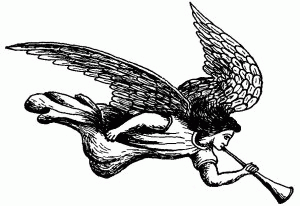 “Notes from the Playground” is a regular feature on our blog. For this series, Greg John generously allows us to share his principal’s reflections and stories from his delightful book, Notes from a Playground. In these stories, Greg enables us to see the world through the eyes of elementary school students and shares how he, as their principal, reflects and responds to them. There is great wisdom here — both the children’s and the principal’s — that we all can learn from. And there is whimsy and wonder to delight us all.
“Notes from the Playground” is a regular feature on our blog. For this series, Greg John generously allows us to share his principal’s reflections and stories from his delightful book, Notes from a Playground. In these stories, Greg enables us to see the world through the eyes of elementary school students and shares how he, as their principal, reflects and responds to them. There is great wisdom here — both the children’s and the principal’s — that we all can learn from. And there is whimsy and wonder to delight us all.
I must have read “Trumpet” half a dozen times, trying to find the words to describe it. What is it about Oswaldo’s story that captivates me so? I think that given our challenging times, this improbable story caught my imagination and transported me beyond the “typical clanging” that fills up most of our days. The joy I find here helps me put doubt to the side so that I can be one with the boy who meets “his moment of truth with an open heart.”
Trumpet
— Greg John, Notes from the Playground
If I tell you a story about a particular kind of pitch – a slow rollie – and if I tell you about the kick that followed, I am not telling you what I saw. I am re-telling a nine year-old’s tale. I will admit that I had my back turned at the time.
You will have to close your eyes and let yourself see a fat red ball sliding off one boy’s open palm. Stretch time and space so that the kickball tumbles forward as the playground bell rings. The sound of the bell does not stop the ball. How could it? Instead, the ball rolls with enough energy for a journey from an open palm to home base. Oswaldo, the kicker, waits and becomes one with the ball’s transit. He has waited for this chance, last in a line of ten classmates.
You’ll have to let your mind bend the sound of the bell beyond the expected. Make it a long, warbling roll. Oswaldo’s glorious moment, one that he has anticipated, hangs in space delineated by this sound.
Remember, too, that yard bells divide time in blunt ways. They truncate and intrude as if they had something to offer beyond interruption. A ringing bell brings no insight about the pitcher, Anthony, whose mother’s arms are so strong she could twist off a sheep’s head. The same bell offers no comment about the kicker’s father, a man whose voice trembles each time he utters his son’s name. .. Oswaldo.
Within this stretch of time, children will hear a bell, dash, run, duck, cut. Whatever. Game time will end and the diamond will clear. However, for the one whose short crop of black hair glistens beneath a shy and shrouded sun, whose black eyes lock on to the ball the way a hawk’s eyes fix on a squirrel’s tail, there is only this moment. He hears no bell. His stout foot will smack a rubber ball, offering punctuation to divide all that came before from all that might follow.
Impossible glory will come and go without a single witness beyond the one who will hear him out.
From impact to arc that wafts toward gray, this remarkable, unseen ball does something astounding. It drops from above only to make a profound bounce atop the yard’s lone basketball pole – a one in a billion probability – and it rises up again, lifting over chain link and into the onrush of boulevard cars. Bounding through three lanes of traffic. it hops, at last, into the open doors of a single streetcar just as these doors open and close, and the car rattles onward.
For this sequence of events, Oswaldo will produce not a single scrap of evidence. Even the ball itself will have departed. But do not surrender to doubt just yet. When an event of this order transpires, witnesses whom none can see look down from parting clouds – they lift radiant chins and angle their ears toward a pitch distinct among the racket below – alert to a chord more pure than the typical clanging that they most often hear.
No one needs to see truth for truth to exist. It stands on its own merits. To the boy with the tallest tale, let him meet his moment of truth with an open heart – believe in it and know that when a trumpet pierces heaven and sings out just once, it may be singing just for him.
Question to consider:
How does a child know when the song he hears is one that’s meant just for him?
What are your thoughts on this question? What does this story bring to mind? We’d love to hear from you, please add your comments below.
Thanks to Greg John for another terrific story from his book: Notes from the Playground. For more, please check out his website.

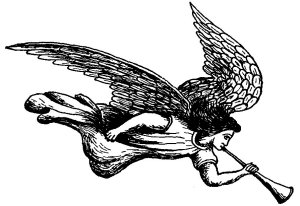
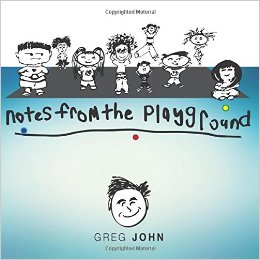
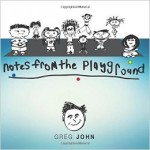


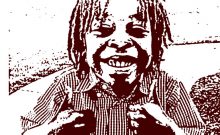

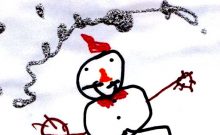
Leave a Comment